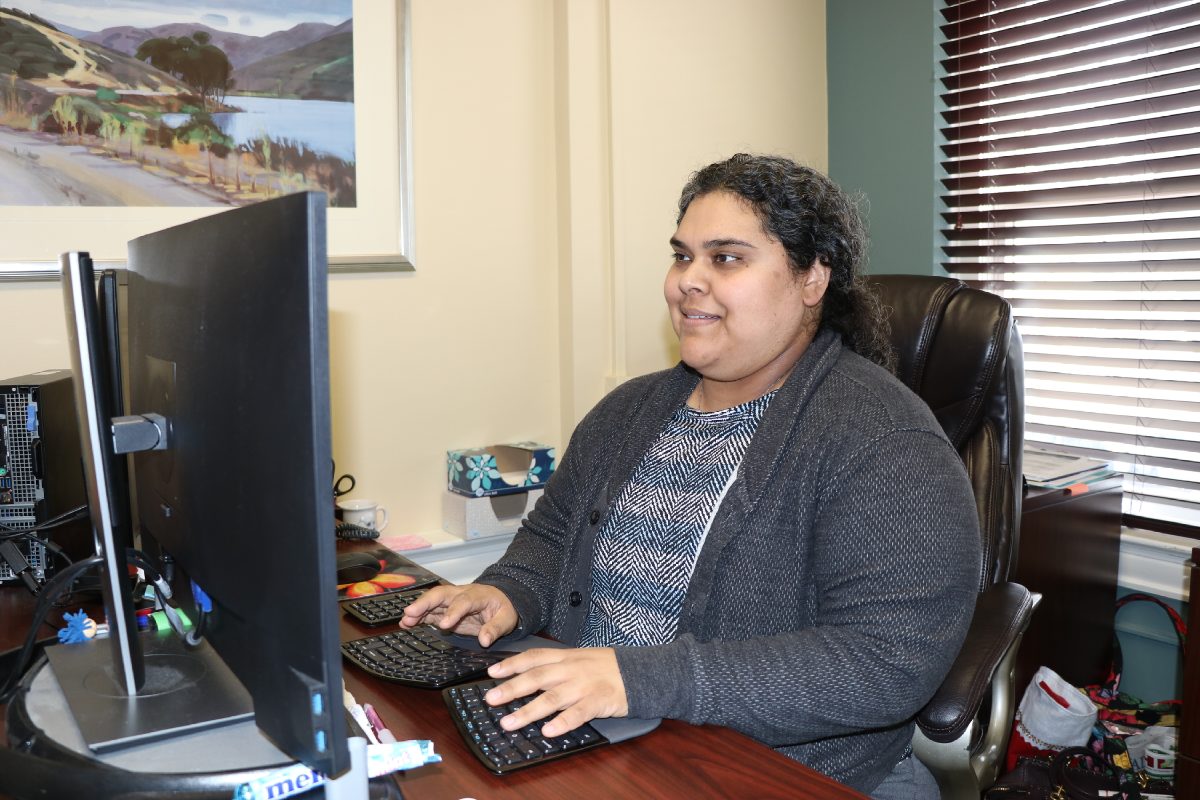HARLINGEN — She smiles as her fiancé presents her with a new car while jingle bells go ding-ding-ding.
Snow falls gently on a joyous family as they play in the front yard, the Christmas lights twinkling around their house. A group of children sing Christmas carols door to door, families gather joyously around a table covered with a warm turkey, stuffing and cranberry sauce. They engage in delightful conversation, catching up on the nieces, the nephews, the grandchildren. Everybody’s happy.
It’s all bliss and happiness, but there’s just one thing missing.
It’s not always that way, at least not the way television presents the occasion. The holiday blues can sink its teeth into people, and it’s often aggravated by what they see on television.
“There are a lot of stressors that are unique to the holiday season,” said Marisa Montes, program therapist for Valley Baptist Medical Center in Brownsville.
Montes recently gave a presentation titled, “Making it through the Holidays — Coping with Holiday Stress” to a group of health care professionals. Valley Baptist in both Brownsville and Harlingen offer mental health services through intensive outpatient programs.
Montes said some holiday stress and depression can be aggravated by what people perceive as the ideal of what Christmas should be.
“A lot of it has to do with unrealistic expectations that people have,” she said. “They see the happy family, the happy couple. Everyone gives each other a brand new car. They see this on TV and movies, everywhere.”
People see all these images of a perfect holiday and start comparing themselves to the bigger-than-life expectations.
“They have this idea that, ‘Why is my life so different from what I see on TV?’ when really all of our lives are different from what we see on TV,” she said.
Other holiday stressors may include the sometimes maddening “to-do” list.
“You have a million things to do and only 24 hours a day and it never ends,” she said.
And what for? To prepare for a holiday that some friends and relatives may not be so excited to celebrate.
“A lot of times there’s stress in the family, unresolved trauma,” Montes said. “There might be issues with poor communication, alcohol and drug abuse.”
Holiday depression can set in deep for those having marital difficulties or financial problems. People who already struggle with mental health issues such as depression, anxiety or a mood disorder may find it especially difficult to handle the holidays. If they don’t have adequate social support to stave off their looming grief, the problem can become worse.
These issues can come together to create an avalanche of anxiety, fear, isolation and hopelessness. The sufferer may experience insomnia. They may sleep too much or not enough. They may have a low appetite or they may not eat at all. They can become forgetful and irritable as they descend into the dark hole of their own very private hell.
How to stay out of this cycle? There are ways.
The key is self care, Montes said.
“One thing we need to be aware of is focusing on our self care, tending to all the different aspects of our well-being,” she said. “That means emotionally, in our work setting, our mental health, in our social relationships, our bodies, our spirituality.”
People must prioritize their own needs while going about their business and commitments.
“If we’re not going to the doctor when we feel bad, if we’re not actually getting all of our physical needs met, then we need to step back and think this out,” she said.
She referred to a technique called mindfulness. People practicing mindfulness can stop and focus on their breath and other sensations, such as sounds, what they see and what they feel.
“Practicing mindfulness is a way of actually being present in the moment, acknowledging your thoughts, acknowledging your emotions,” she said. “It’s allowing yourself to be ‘here,’ wherever that is.”
Basically, take it easy over the holidays, and cut yourself some slack.







